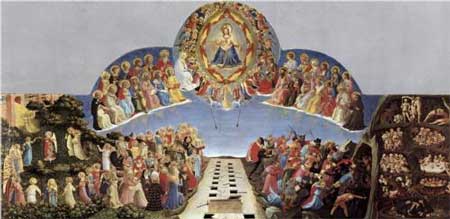
I defined how I’ll use the term ‘philosophy‘ in a previous article. In this one I’ll focus on ‘religion.’ Religion is one of those vague, umbrella terms that’s incredibly difficult to define because it encompasses so many traditions of varying beliefs. The modern philosopher, John Hicks, has a concise overview of how numerous philosophers have defined it in his book, Philosophy of Religion.
What, however, is religion? Many different definitions have been proposed. Some of these are phenomenological, trying to state that which is common to all the acknowledged forms or religion; for example, religion is ‘Human recognition of a superhuman controlling power and especially of a personal God or gods entitled to obedience and worship’ (Concise Oxford Dictionary). Others are interpretative. Thus there are psychological definitions – for example, ‘the feelings, acts, and experiences of individual men in their solitude, so far as they apprehend themselves to stand in relation to whatever they may consider the divine’ (William James). Others are sociological – for example, ‘a set of beliefs, practices, and institutions which men have evolved in various societies’ (T. Parsons). Others, again are naturalistic – for example, ‘a body of scruples which impede the free exercise of our faculties’ (Salomon Reinach) or, more sympathetically, ‘ethics heightened, enkindled, lit up by feeling’ (Matthew Arnold). Yet others are religious definitions of religion – for example, ‘Religion is the recognition that all things are manifestations of a Power which transcends our knowledge’ (Herbert Spencer), or again, ‘humanity’s response to the divine.’
More recently, Ludwig Wittgenstein proposed that there isn’t a single correct definition. Rather, he proposed a set of ‘family resemblances’ – characteristics that most, though not all religions, share. This allows for the differences we see between Christianity and Theravada Buddhism, yet we can still call both ‘religions.’
Here are 10 characteristics and components that come to mind when we think about religion:
- Framework of Beliefs – There is a particular philosophy or ideology that describes what is true and how we should interpret reality.
- Life Meaning – There is a belief that life is not simply the result of a chain of events in time and space but that our life has a purpose and we were born at this time for a reason. (ie it’s all part of God’s plan for us)
- A Supernatural Dimension – There’s something out there beyond the reality we can experience with our senses.
- Supreme Being – There is a supreme being or group of beings that exist.
- Religious Behaviors – There are certain rituals, prayers, meditations, and types of worship that practitioners engage in.
- Morality – There are specific foods and/or activities that are considered inappropriate and must be avoided to live a just and moral life.
- Culture – There are specific artifacts, symbols, music, and literature that are considered holy and meaningful to practitioners.
- Public and Private Components – There is a public component that usually involves a hierarchical structure to oversee worship, make key decisions on theology, and resolve conflicts (ie priests, monks, the Pope, the Dalai Lama, etc) as well as a private component of contemplation and devotion.
- An Afterlife – There’s more to life than the time we spend from birth to death. With some, that’s heaven. With others, it’s nirvana or reincarnation.
- Final Judgment – At the end of our lives, we will be judged based on how we lived and rewarded or punished.
Because much of this website deals with concepts of evil, I’m going to be primarily sticking with Western religious traditions – and in particular, the ‘Ethical Monotheistic’ religions of Judaism, Christianity, and Islam.











 Philosophy of Religion: A Definition of Philosophy
Philosophy of Religion: A Definition of Philosophy